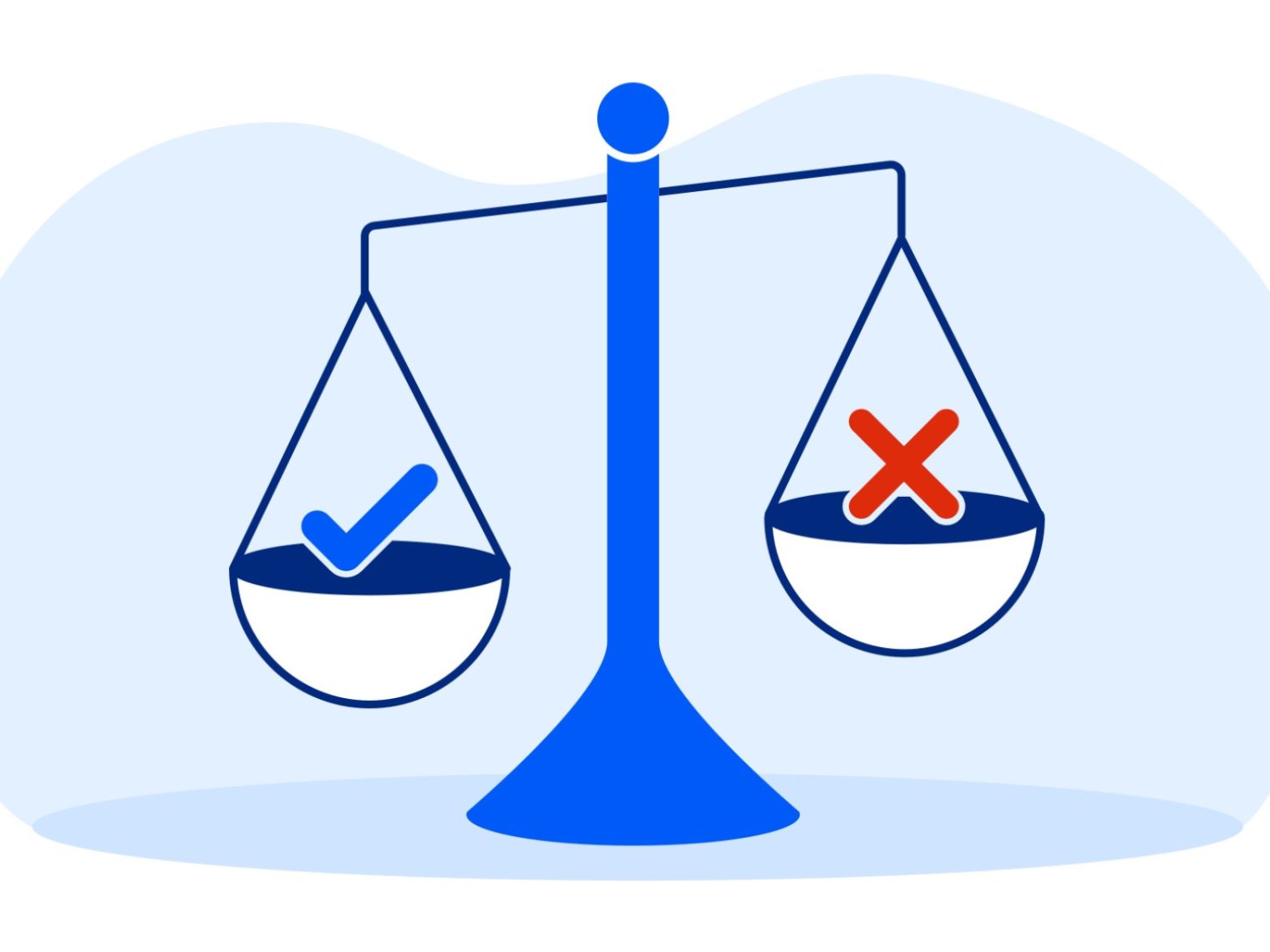- Your VA disability rating alone has no negative effect on VA loan eligibility.
- In fact, your rating may provide cost-saving benefits like a funding fee exemption, property tax savings and disability income that counts toward qualification.
A VA loan is one of the most powerful benefits Veterans earn through service. But if you’re a disabled Veteran, you might wonder how your disability rating or even past credit challenges affect your ability to qualify.
The good news: a VA disability rating often gives you more advantages, not fewer. While your credit history matters, it doesn’t automatically shut the door on your VA loan benefit. Let’s break it down step by step so you know what to expect.
Are Disabled Veterans Eligible for a VA Home Loan?
Yes, disabled Veterans who have VA loan entitlement are absolutely eligible for a VA loan.
Like all borrowers, you must meet VA service requirements to qualify. Your lender then reviews your credit score, debt-to-income ratio and residual income to ensure you can manage a mortgage payment.
Your disability rating itself won’t hurt your chances of qualifying. In fact, VA lenders can count disability income as effective income, and borrowers with a service-connected disability are exempt from paying the VA Funding Fee — a mandatory cost the Department of Veterans Affairs (VA) applies to every purchase and refinance loan to help cover losses and ensure the program's continued success.
VA disability income is even looked at favorably because it’s such a stable and consistent income source, as it's not likely to change. Since it’s also non-taxable, lenders can ‘gross up’ the income to increase the qualifying amount.
VA Loan Benefits for Disabled Veterans
No matter if you are 10% or 100% disabled, the VA Funding Fee is waived, and disability income counts toward a VA loan.
VA Funding Fee Exemption for Disabled Veterans
Veterans receiving compensation for a service-connected disability are exempt from paying the VA Funding Fee, which otherwise applies to all purchase and refinance loans.
Not paying the funding fee is a big benefit for disabled Veterans since it’s a percentage of the loan amount.
For many first-time homebuyers, the funding fee is 2.15%. For a $250,000 loan, that fee is $5,375. Borrowers without an exemption can ask the seller to pay this or pay it themselves, either upfront or over time by rolling the cost into the mortgage.
It’s also not uncommon for VA borrowers to wait on a disability rating determination during the loan process. In those cases, lenders must still obtain and remit the fee to the VA unless clear documentation shows the borrower is exempt. Veterans who receive a disability rating after their loan closing may be able to obtain a refund of their VA Funding Fee.
This exemption isn’t just for a small group. According to VA’s most recent Fiscal Year (FY) 2024 Annual Benefits Report and its official Veteran Population Projection Model, about 6 million Veterans are receiving disability compensation at a rating of 10% or higher out of roughly 18 million Veterans nationwide — close to one in three Veterans who generally qualify for a VA Funding Fee waiver on VA purchase loans, cash-out refinances, and IRRRLs.
In FY 2025, the VA guaranteed 525,759 loans, so a significant share of VA borrowers either already avoided the funding fee or may be able to seek a refund once their disability claim is finalized. For many, that can mean thousands of dollars in savings on a typical home purchase or refinance.
Counting Disability Income on a VA Loan
Disabled Veterans still need to meet a lender’s requirements, but disability income counts as stable, reliable income when qualifying for a VA loan. All Veterans still need to meet a VA-approved lender's credit and underwriting requirements.
Generally, VA lenders look for a minimum credit score of 620 to move forward. A stable, reliable income that's likely to continue is critical. So is having a healthy balance between debt and income.
Housing Grants for Disabled Veterans
Disabled Veterans may also qualify for VA housing grants, such as the Specially Adapted Housing (SAH) program, which helps Veterans adapt or retrofit properties to meet their unique needs. Grants can run up to $5,000 and even $10,000 in some cases.
Every borrower's situation differs, so it's best to contact the VA directly to determine whether you're eligible to utilize the SAH program.
VA Property Tax Exemptions
Homeowners pay property taxes each year, typically as part of their monthly mortgage payment.
Borrowers who receive disability income may also be eligible for property tax exemptions. These exemptions vary by state and other factors.
At Veterans United, borrowers may qualify for a loan with tax-exempt amounts and have escrows set up to reflect the exemption. Talk with a Veterans United VA loan expert at 855-259-6455 for more details.
What if the Veteran was Rated Incompetent?
In some cases, the VA may determine that Veterans are unable to manage their own hard-earned VA benefits because of health-related issues.
When this happens, the VA will appoint a fiduciary to receive the disability compensation and help the Veteran best utilize it.
Veterans in these situations may qualify for a VA loan, but these files require formal approval from the VA in order to close.
VA officials want to ensure the new loan is in the best interests of the Veteran. Review times can vary, but they may take up to a month or more in some cases.
What if the Veteran has a 100% Disability Rating?
A 100% VA disability rating often comes with the most impactful savings in the VA home loan program. While all disabled Veterans with compensation are exempt from the VA Funding Fee, those rated 100% often qualify for additional housing-related perks not always available at lower ratings.
Special Home Loan Benefits for 100% Disabled Veterans
If you’re rated 100% disabled, here’s what that can mean for your VA loan journey in addition to the VA Funding Fee exemption:
- Many states offer full property tax exemptions for Veterans with a 100% rating. That can wipe out one of the biggest ongoing costs of owning a home.
- Programs like the Specially Adapted Housing (SAH) or Special Housing Adaptation (SHA) grants are designed to help Veterans with severe and permanent service-connected disabilities build or adapt a home that truly fits their needs.
These features, combined with the standard VA loan benefits like 0% down and no PMI, make a VA home loan an affordable option for 100% disabled Veterans.
For example, say you buy a $250,000 home with a VA loan. Normally, a first-time buyer would pay a VA Funding Fee of $5,375. With a 100% disability rating, the fee is waived, resulting in immediate savings of more than $5,000.
Additionally, a Veteran with a 100% disability rating won’t pay any property taxes in most states. If property taxes in your area run around $2,500 a year, that’s another $25,000 saved over 10 years of homeownership. Altogether, that’s over $30,000 in savings, just for having a 100% disability rating. That money can instead go toward family needs, savings or home improvements.
Home Loans for Disabled Veterans With Bad Credit
Getting a VA loan while disabled and with bad credit is possible, but it depends on your definition of bad credit.
The VA doesn’t set a minimum credit score requirement, but lenders generally want a 620 mortgage credit score or higher to secure financing for a VA loan.
However, if your credit score is below a lender's minimum, that doesn’t immediately count you out. Some lenders consider compensating factors to help offset your bad credit.
Veterans United offers complimentary credit consulting services to help individuals qualify for a VA loan. Thousands of Veterans have improved their credit profile and secured loan approval with our help.
VA Loans and Disabled Veterans: The Big Picture
Your VA disability rating is not a barrier to homeownership; it’s often an advantage. From VA Funding Fee savings to property tax exemptions and VA disability income qualification, disabled Veterans can access powerful benefits.
Even with bad credit, it’s worth exploring your options with a VA-approved lender. Reach out to a Veterans United VA loan expert at 855-870-8845 or get started online today.
How We Maintain Content Accuracy
Our mortgage experts continuously track industry trends, regulatory changes, and market conditions to keep our information accurate and relevant. We update our articles whenever new insights or updates become available to help you make informed homebuying and selling decisions.
Current Version
Dec 10, 2025
Written ByChris Birk
Reviewed ByTara Dometrorch
Minor update to include data figures estimating how many Veterans benefit from funding fee exemptions.
Nov 4, 2025
Written ByChris Birk
Reviewed ByTara Dometrorch
Minor content updates for clarity. Article reviewed and fact checked by team lead underwriter Tara Dometrorch.
Related Posts
-
 VA Renovation Loans for Home ImprovementVA rehab and renovation loans are the VA's answer to an aging housing market in the United States. Here we dive into this unique loan type and the potential downsides accompanying them.
VA Renovation Loans for Home ImprovementVA rehab and renovation loans are the VA's answer to an aging housing market in the United States. Here we dive into this unique loan type and the potential downsides accompanying them. -
 Pros and Cons of VA LoansAs with any mortgage option, VA loans have pros and cons that you should be aware of before making a final decision. So let's take a closer look.
Pros and Cons of VA LoansAs with any mortgage option, VA loans have pros and cons that you should be aware of before making a final decision. So let's take a closer look.

